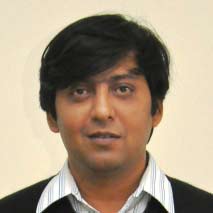Free Data Science Foundations Course
Data Science Foundations
Enrich your skills in Data Science by strengthening your foundational knowledge. Enroll in this free course and thoroughly learn the life cycle, tasks, programming languages, and analytics landscape concepts.
Instructor:
Dr. Bappaditya Mukhopadyay
Ratings
Level
Learning hours

Learners
Skills you’ll Learn
About this Course
The Data Science Foundations course proffers your knowledge on the introduction to the subject and gives you insights into the different phases of its life cycle. The course covers topics about various tasks carried out in Data Science and different programming languages that are compatible to work with to accommodate the tasks efficiently, and Machine Learning, contributing to the dynamic behavior of machines and making significant associations with DS. The analytics landscape is another significant component within an organization, which you will learn in the latter part of the course, to understand workflow and asset distribution thoroughly. You will have to take an assessment to test your gain on the subject. The course also provides you with study materials for your reference at any given point after enrolling in it.
After this free, self-paced, beginner's guide to Data Science Foundations, you can embark on your Data Science career with the professional Post Graduate certificate and learn various concepts in depth with millions of aspirants across the globe!
Course Outline
This section gives you various examples to help you understand Data Science. It explains how you decide on a place for the vacation, how the weather is predicted, and sales during a particular time in a year using data science.
Data Science life cycle revolves around data acquisition, preprocessing, ML algorithms, pattern evaluation, knowledge representation, and analytical strategies to predict and proffer insights, which we shall learn in this module, into the procedures to yield the best results.
Data mining tasks include classification, prediction, association, clustering, and summarization. This module explains anomaly detection, continues with matching data points and explains the concept with a real-life example.
Machine learning is a learning method to process raw data based on the previously trained model for similar input data. This section explains how machines understand the patterns and the features through which it tags every data.
Most commonly used programming languages used in Data Science are R (for statistical computation) and Python (including MATLAB library), which we will know why in this section. We will also look into the famous libraries in each of these languages for Data Science.
Our course instructor

Dr. Bappaditya Mukhopadyay
Professor, Analytics & Finance
With an MA in Economics from Delhi School of Economics and PHD from ISI, Dr. Mukhopadhyay is currently the professor and chairperson of the PGPBA program at Great Lakes Institute of Management. He is also the visiting professor of the University of Ulm, Germany, and distinguished Professorial Associate, Decision Sciences and Modelling Program, Victoria University, Australia. His areas of interest and expertise include applied economic theory, game theory, analytics, statistics, econometrics, derivatives and financial risk management, survey design, execution, and others.
Noteworthy achievements:
- Ranked 4th Amongst the "20 Most Prominent Analytics & Data Science Academicians In India: 2018".
- Prominent Credentials: He has various research papers published in national as well as international journals. He is currently working on a book titled Measuring and Managing Credit Risk. He has been the Managing Editor at Journal of Emerging Market Finance and Journal of Infrastructure and Development, member of Index Committee, member of Research Advisory Committee, Research Advisory Committee, NICR, Expert member in Faculty Selection committees at various Business schools, among others.
- Research Interest: Information economics and contract theory, financial risk management, credit risk and agency theory, microfinance institutions, financial Inclusion, analytics in public policy.
- Teaching Experience: He has more than 20 years of teaching experience in economics, finance.
What our learners enjoyed the most
Skill & tools
61% of learners found all the desired skills & tools















